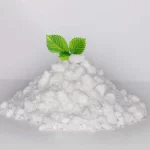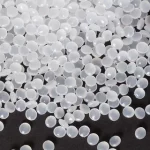
Bulk paraffin is one of the key raw materials in various industries. In this article, you will get familiar with the types of bulk paraffin, industrial applications, advantages, how to choose correctly, and its export considerations.
What is bulk paraffin and why is it important?
Paraffin is a widely used material in various industries that is considered a derivative of crude oil refining. This substance, with a chemical structure based on chain alkanes, is widely used in industries such as candle making, textiles,
plastics, food, pharmaceuticals, cosmetics, animal husbandry, and even in heavy industries such as rubber and lubricants.
Bulk paraffin is a term used to describe the supply of this material in large quantities (barrel, gallon, tanker, pallet, or industrial bags). Bulk purchase not only results in cost savings, but also creates a competitive advantage in continuous and reliable supply for industrial manufacturers.
Types of bulk paraffin; high variety suited to your needs
One of the strengths of the paraffin market is its high diversity. Depending on the type, purity, melting point or flash point, physical form, and oil content, paraffins are classified into different types:
-
Solid bulk paraffin
This type of paraffin is offered in block or slab form and is usually packaged in bulk packages of 5 to 30 kilograms. Its application is in candle making, match manufacturing, waterproofing of paper and cardboard, box coating, and hygienic uses. -
Liquid bulk paraffin
Supplied in 200-liter barrels or large tankers and used in artificial leather, rubber production, emulsion production, detergents, lubricants, adhesives, and plastics industries. -
Semi-solid paraffin (petroleum jelly)
This type lies between solid and liquid state and is widely used in pharmaceuticals, cosmetics, and hygiene (such as cream, ointment, balm, and lotion production). -
Edible paraffin for livestock and poultry
Bulk edible paraffin for livestock is used as a dietary supplement to reduce inflammation in the digestive system of animals in industrial farming.
Flash point of liquid paraffin and its importance in bulk purchasing
In purchasing bulk liquid paraffin, paying attention to the flash point is very important. This feature, which indicates the minimum temperature needed for the material to evaporate and ignite in the presence of a flame source, is
directly related to the industrial application of paraffin.
Types of liquid paraffin flash point:
-
Flash Point 100 – 120°C: Suitable for general applications in light and hygienic industries
-
Flash Point 140 – 160°C: Used in rubber, lubricants, and paint industries
-
Flash Point 180 – 200°C: Specific for sensitive and high-temperature uses
-
Flash Point above 200°C: Used in heavy lubricants and special industrial adhesives
The higher the flash point, the safer the product during use in high-temperature conditions. Choosing the appropriate flash point must be done according to production conditions, process line, and final product.
Applications of bulk paraffin
-
Candle industry: Solid paraffin in bulk is used in mass candle production.
-
Rubber and plastic industries: Liquid paraffin increases flexibility and reduces friction in components.
-
Food packaging industries: Coating and resistance against moisture.
-
Pharmaceuticals and cosmetics: For producing creams, ointments, and protective balms.
-
Paint and resin industries: As a thinner or performance enhancer.
-
Animal use: Edible paraffins for digestive health of livestock.
Advantages of buying bulk and wholesale paraffin for industries
Buying paraffin in bulk has numerous advantages that make it an ideal option for large and medium-sized businesses:
-
Significant economic savings
Buying in large scale leads to reduced unit prices and eliminates packaging costs. -
Optimized transportation and warehousing
Bulk packaging better manages warehouse space and simplifies transport. -
Assurance of continuous supply
In production industries, uninterrupted supply of raw materials is vital. Bulk purchasing ensures this. -
Customization based on specific needs
Bulk buyers can order paraffin with specific analysis, color, purity, or particular oil content. -
Environmentally friendly
Elimination of retail packaging helps reduce non-recyclable waste.
Important points before buying bulk paraffin
If you intend to buy paraffin on a bulk scale, be sure to consider the following points:
-
Determine the intended use: Is it for candle making? Or cream production? Each use requires a specific type of paraffin.
-
Request the technical analysis of the product: Always ask the seller for an official and valid analysis including flash point, oil content, color, and viscosity.
-
Check the supplier’s credibility: Buying from reputable traders or factories experienced in supplying to large industries reduces transaction risk.
-
Compare price with delivery terms: Don’t focus only on the price figure. Delivery time, transport costs, inventory availability, and supply stability are also very important.
Bulk paraffin in Iran’s export market
Iran is one of the major suppliers of paraffin in the region. Especially neighboring countries such as Afghanistan, Iraq, Pakistan, Turkey, and the Central Asian republics have always been heavy consumers of this material.
To export bulk paraffin successfully:
-
International standards and official analysis must be provided.
-
Industrial packaging must be acceptable.
-
DDP, EXW, or FOB delivery terms should be agreed upon in advance.
-
Demand in the target market must be precisely analyzed.
Conclusion:
Why is bulk paraffin a smart choice?
Bulk paraffin, not only for economic reasons, but also due to its flexibility, broad application, and ease of supply, is considered one of the most important consumable goods in manufacturing industries. Choosing a professional
supplier, receiving accurate analysis, and defining technical needs are the keys to successful bulk paraffin purchases.
Whether for domestic use or to compete in export markets, bulk paraffin will be a strategic, reliable, and profitable option.















